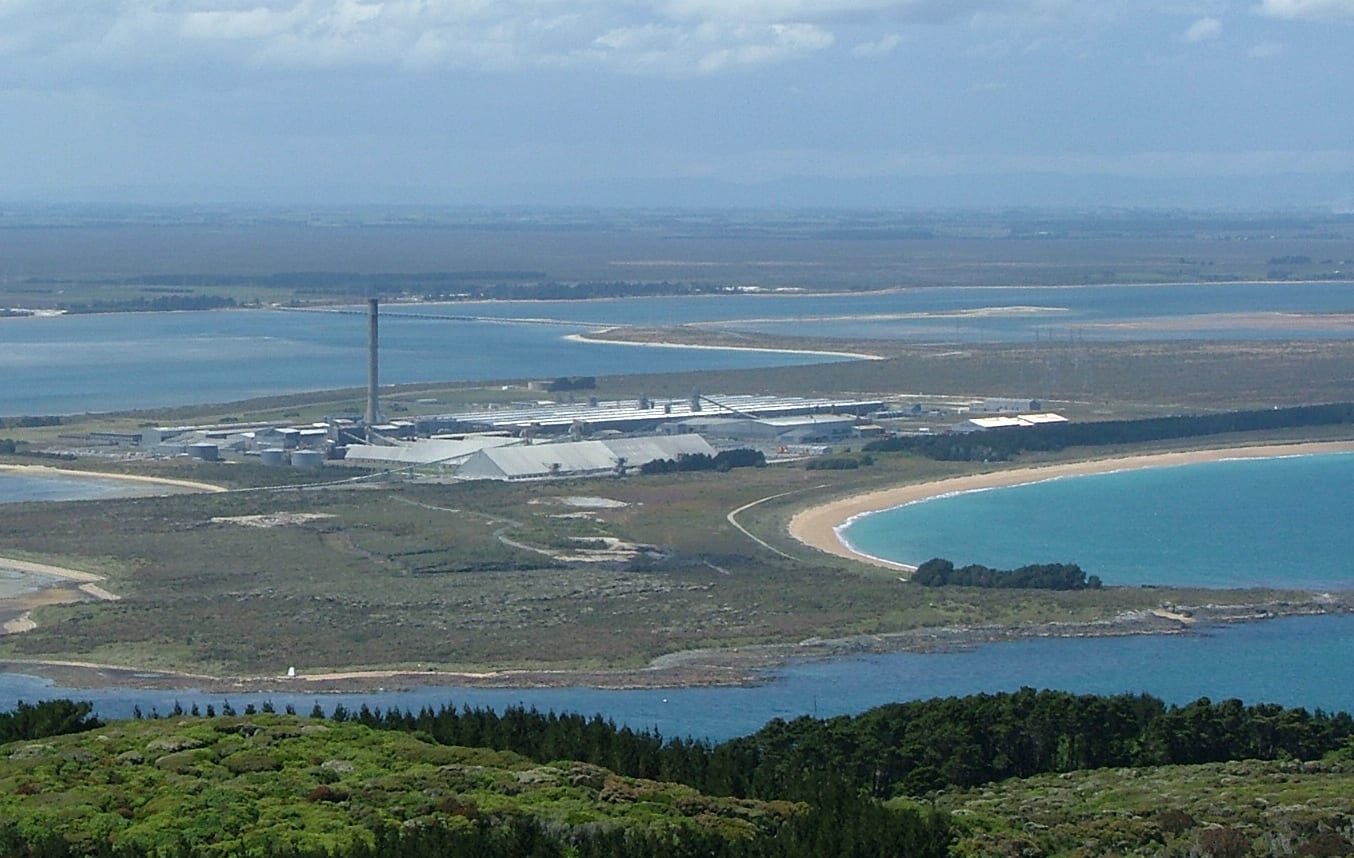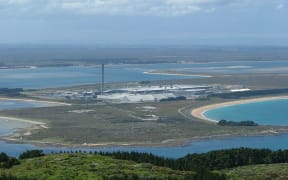Southland's aluminium smelter is expected to stay in business, despite the existence of a shut-down clause that became available to the company from Sunday.

Southland's Tiwai Point aluminium smelter employs 800 people and is worth $500 million a year to the region's economy. Photo: Wikicommons
The price of aluminium has inched up from unsustainable lows and the New Zealand dollar has fallen from unsustainable highs, which RNZ understands has increased the ability of the company to break even on a daily basis.
The full facts about the smelter will not become definite until the company's results for 2016 are released in the next few months.
But the plant is not expected to shut down in the short to medium term.
An existing agreement with Meridian Energy gives electricity to the Tiwai Point smelter until 2030.
The aluminium plant has the right to terminate that agreement any time from 2018, as long as it gives one year's notice.
That meant that Sunday 1 January 2017 was the first day available to the smelter to announce a closure.
Such an announcement is not expected any time soon, thanks to glimmers of good tidings in an industry habituated to gloom.
Each one-cent fall in the value of the New Zealand dollar against the US dollar nets the smelter $6 million a year, and the Kiwi has fallen over a quarter against the greenback in the past two years.
In addition, the price of aluminium on world markets has risen slightly during 2016, though it is still low compared with prices in 2011.
But the news was not all good.
The price of 172 of the smelter's total usage of 572 megawatts went up on Sunday.
And the Electricity Authority is gradually winding back a once-promising cut in the price the smelter must pay for the national grid.
It is currently compelled to pay $60.8m a year for its share of the grid, and now looks likely to still have to pay at least $41.9m, which would be a far higher price than the company was hoping to end up with.
The company is understood to be likely to stay in business despite that cost, although that position will become clearer when it issues its submissions on the authority's proposal next month.
The Tiwai Point smelter employs 800 people, gives $500m a year to the Southland economy, and exports goods worth $1 billion annually.
It is strongly supported by local government leaders in the region.
The price the smelter pays for electricity has always been a closely guarded secret, but was estimated at 4.8 cents a kilowatt hour by the analyst Nevill Gluyas of First New Zealand Capital.
The portion of its electricity that rose on Sunday would be slightly over six cents, according to Mr Gluyas.
That would be higher than spot prices over the past month.





